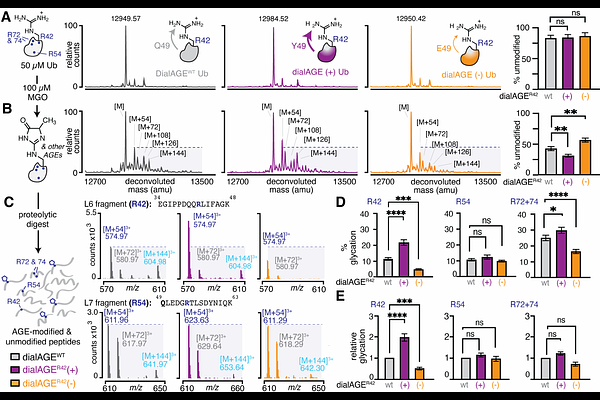Predictable modulation of a spontaneous post-translational modification in living cells

Predictable modulation of a spontaneous post-translational modification in living cells
Martin, M. S.; Bayaraa, N.; Fox, B.; Lin, Y.-S.; Scheck, R. A.
AbstractGlycation is a non-enzymatic post-translational modification associated with aging and disease. Because it occurs spontaneously, it is extremely difficult to control the extent of glycation at distinct sites within target proteins, especially in cellular systems. Here we report a chemical approach, referred to as \"dialAGE\", that enables the site-specific control of protein glycation. This unique tool requires the introduction of just a single point mutation that modulates the glycation susceptibility of a nearby arginine. As proof-of-concept, extensive mass spectrometry analysis was performed to confirm that dialAGE can modulate site-specific glycation levels at multiple arginine residues in ubiquitin in vitro, enabling both enhanced and diminished glycation. Introduction of dialAGE point mutations and/or glycation with the biologically relevant glycating agent methylglyoxal did not affect polyubiquitin chain formation using in vitro ubiquitination assays. Furthermore, we show that dialAGE can be used to modulate ubiquitin glycation levels in living mammalian cells. We therefore anticipate that this method will be particularly useful for enabling the study of glycation as a genuine, functional, post-translational modification.